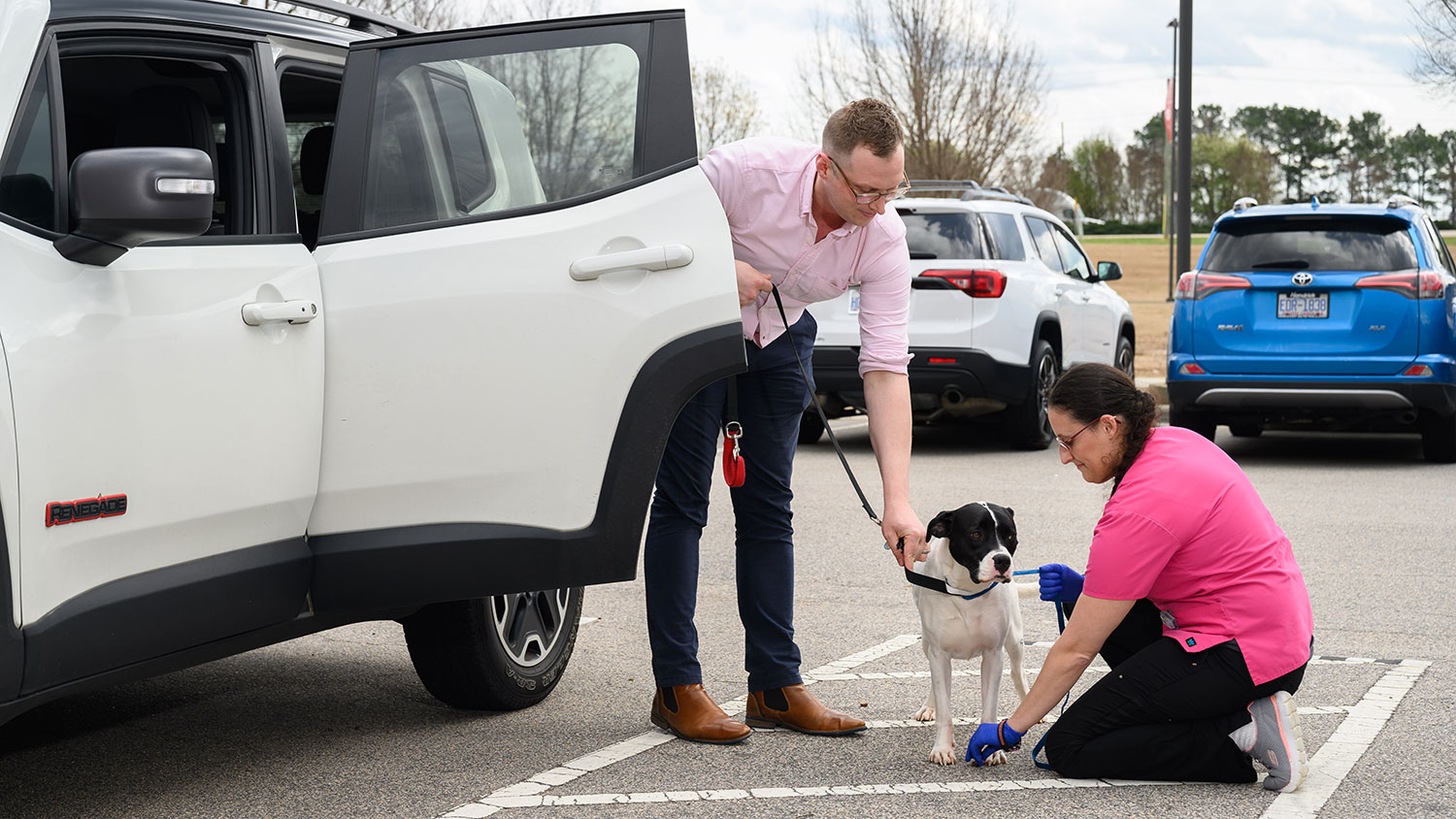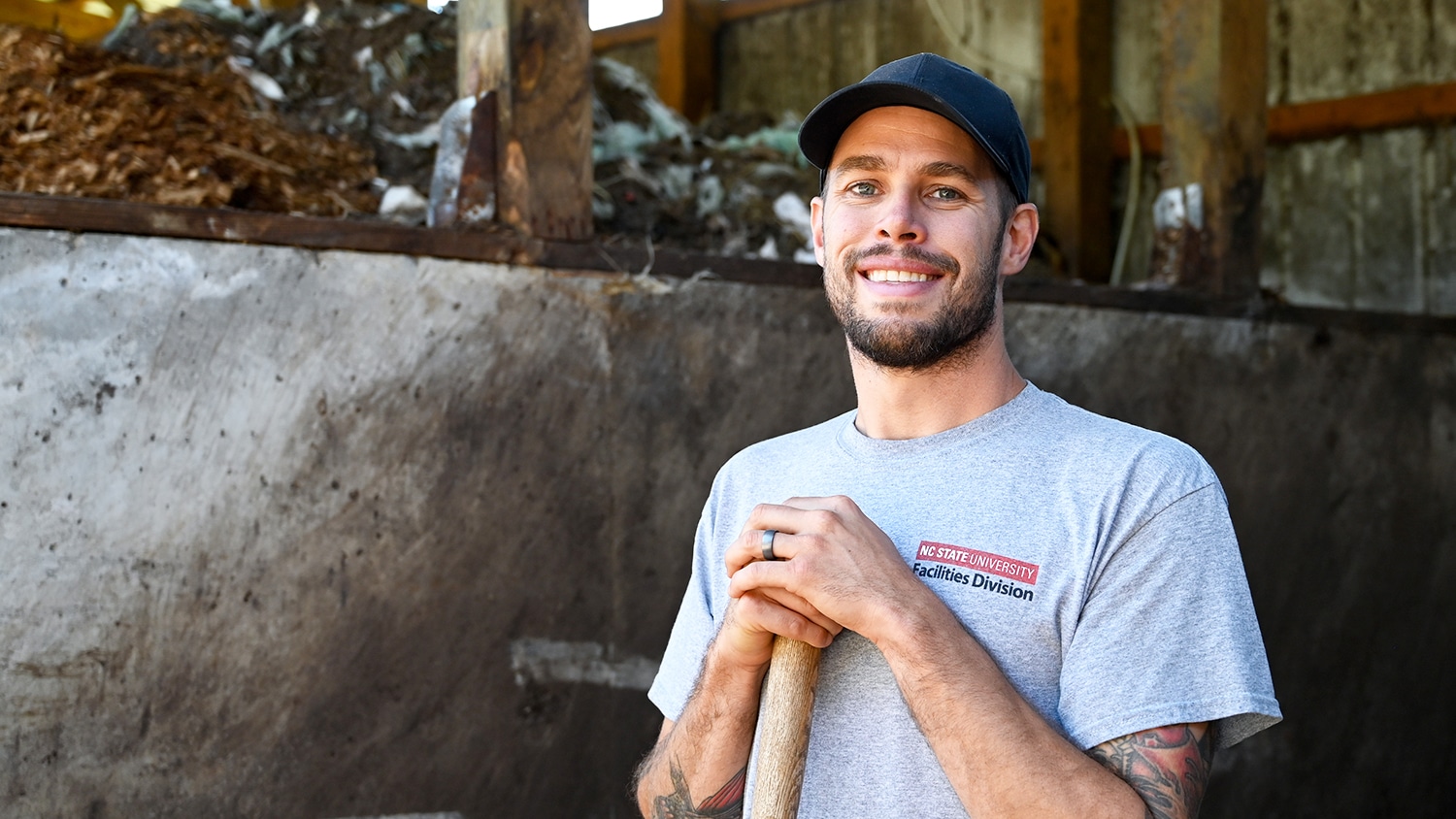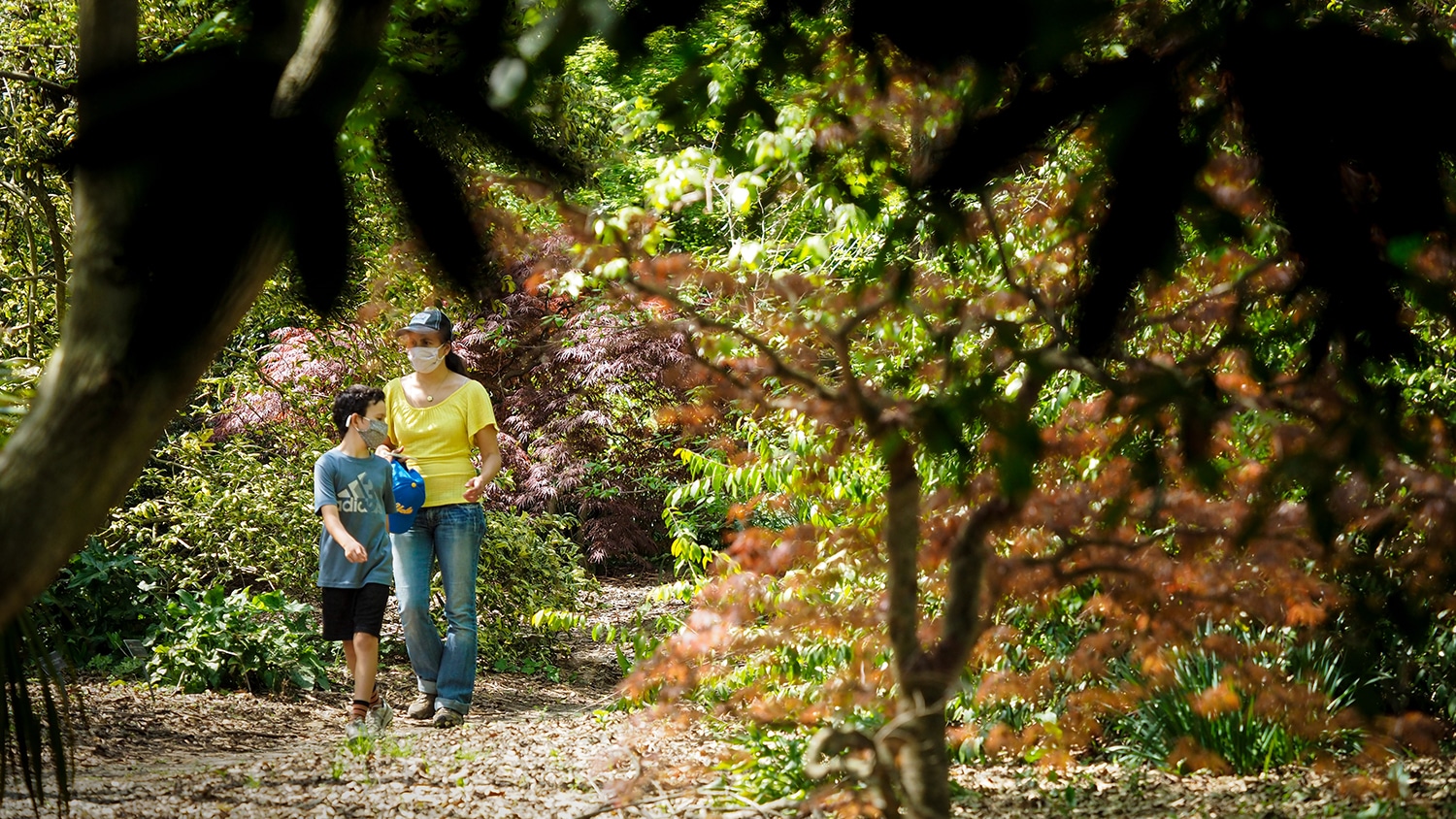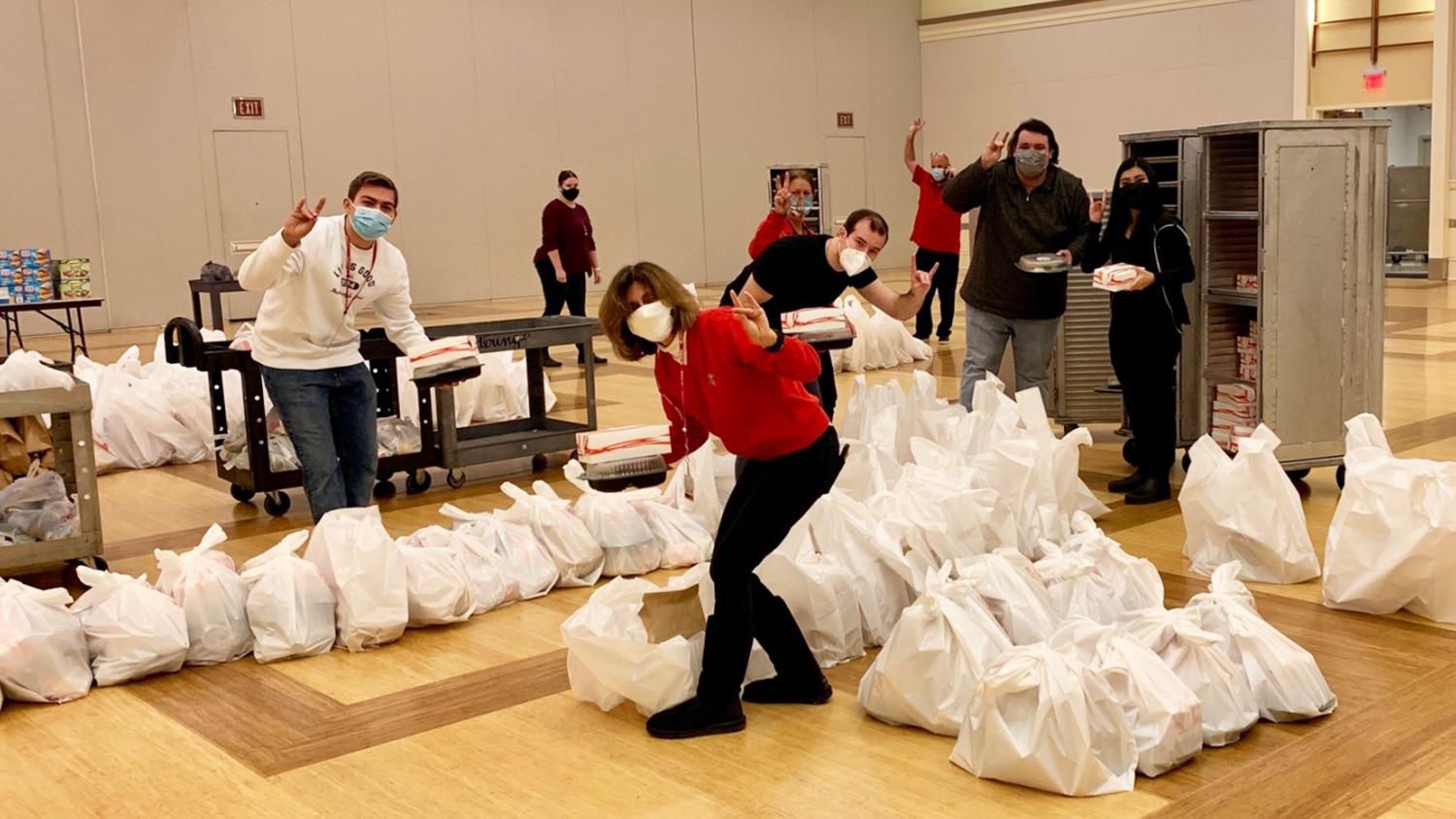‘The Best Friends You’ve Got’: CVM Rallies to Keep Pets, Staff Safe During Pandemic
NC State’s Veterinary Hospital offers curbside service to help the animals who need it most.

Hospitals across the state are adapting to the spread of COVID-19, and that includes one that focuses on a different kind of patient: pets.
Although animals do not pose a risk of spreading COVID-19, the NC State Veterinary Hospital implemented changes earlier this month to keep staff safe while helping the animals who need it most.
“What we’re doing is risk management,” says Paul Lunn, dean of the College of Veterinary Medicine. “We’re not going to totally stop this virus from spreading; we just have to do every possible thing in our power to reduce its spread.”
Lowering the Caseload
The biggest changes are that the hospital is taking emergency cases only and providing curbside service. Under normal circumstances, people could show up and walk into the complex with their pets. Now they need to call ahead of time and expect to stay in the parking lot while staff gather information by phone before taking animals inside for evaluation. Owners then will receive another phone call to discuss treatment, next steps and payment.
Emergency covers a broad spectrum, Lunn says, from the obvious such as a dog hit by a car to a chronically ill animal that requires urgent intervention. Nonemergency cases go on a waitlist, and the hospital will evaluate down the road whether it can accommodate them. The hospital is seeing 30 to 40 cases a day, about a quarter the usual, Lunn says, which reduces the number of staff members on-site and minimizes their risk.
The hospital has not restricted the types of animals it sees and is still accepting everything from rabbits to snakes to quarter horses. Nor has it reduced services.
“We still have all the facilities we need,” Lunn says. “And even though animals may come into emergency, if they then need to be seen by another service — if they need to go to surgery, if they need to go to internal medicine or cardiology — then those services are still taking those animals. All of the functions of the hospital are still going on.”
Currently pet owners are not allowed inside any hospital buildings, including to pick up prescriptions, which are available to order online.
“It’s not only a case of keeping people safe, both the public and us; we also want to keep the hospital open. Our biggest concern is that if we get a COVID-19 case inside the building, we might be shut down so the building could be cleaned,” Lunn says. “So the idea is, if we can reduce the exposure between people, it’s more likely that we can keep on dealing with the most serious cases.”
Disruption, but Gratitude
Lunn says he’s grateful that clients understand why these changes are necessary. He is also grateful for the staff and doctors who rallied to implement new protocols quickly even as the college undertook the major task of shifting to online learning. And the students are grateful, too — the second-year students made a video to thank faculty and staff for working hard to get classes running by March 23.
“That was a complete surprise, and it was wonderful,” Lunn says. “I think the way people are pulling together and helping each other in this college is really quite unbelievable.”
The college is pulling together to help others, too. Hands-on research has declined because of the pandemic, but one benefit is that it’s freed up equipment. On March 23, the vet school sent two ventilators, 500 full-body protection suits and 950 masks to the UNC School of Medicine.
“We did an audit of all our supplies to make sure we had enough so we can stay operating, and then we shipped out this equipment to the local hospitals, the human hospitals, to try and help,” Lunn says. “We buy from exactly the same suppliers they do, so the equipment is identical.”
Having a pet has never had a greater value or impact on trying to keep us well during this really difficult time.
But as much as humans need help right now, Lunn urges people to remember their pets.
“We say they’re our best friends; well, they are never going to be better friends than they are right now, because a lot of us are going to be shut up in our houses. We’re going to spend so much time alone; having a pet has never had a greater value or impact on trying to keep us well during this really difficult time.
“So please take care of them. In the weeks and months ahead, they’re going to be the best friends you’ve got.”
- Categories:


